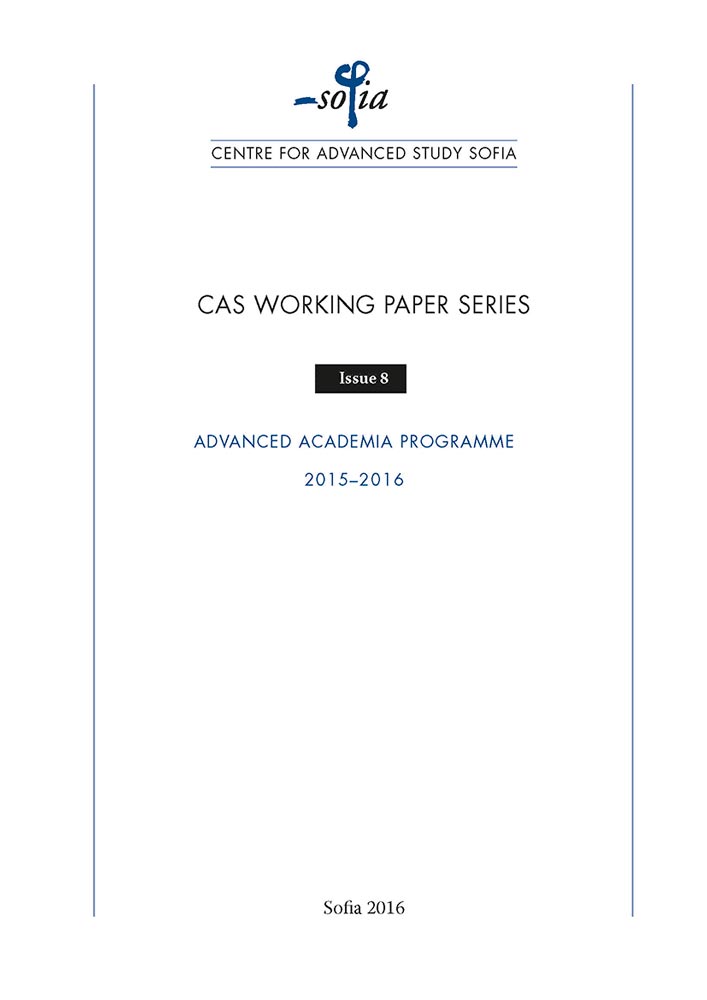Between Terror and Self-Transformation: Petition Writing, Subjectivity and Survival under Ustasha Rule, 1941–1942
Between Terror and Self-Transformation: Petition Writing, Subjectivity and Survival under Ustasha Rule, 1941–1942
Author(s): Rory YeomansSubject(s): History, Military history, Political history, Social history, Recent History (1900 till today), Special Historiographies:, WW II and following years (1940 - 1949), Fascism, Nazism and WW II
Published by: Centre for Advanced Study Sofia (CAS)
Summary/Abstract: The everyday lives of citizens in the early months of the Independent State of Croatia were defined by petition writing more than by any other activity. It was through petitions to state ministries, agencies and local Ustasha authorities that ordinary people sought to gain social advancement, achieve justice and negotiate their dayto- day existences. Cumulatively, they provided officials with a picture—however fragmentary—of public opinion in the state. By contrast, the Serbian and Jewish communities, whom the Ustasha state had targeted for destruction, used petitions as a means of mediating Ustasha terror. Petitions were never just a mode of communication between the state and citizens; they were imbued with subjective meaning. For those included in the envisaged national community, petition writing provided an opportunity to demonstrate that they had been inculcated with the state’s new ideological and cultural orthodoxies, transforming themselves from Croatian citizens into Ustasha subjects; for those “undesired elements” outside the national community, petition writing constituted nothing less than a search for salvation. Yet, paradoxically, it was the state’s “community aliens” who had to demonstrate in their writing the greatest evidence of transformation. In reproducing the language of the state and separating their transformed consciousnesses from other members of their community, they hoped to gain admittance to the national community and avoid terror. The cadre of ambitious young experts and students who poured into state ministries in the spring and summer of 1941 engaged with state ministries and agencies in a very different way, aiming to be active agents in the remaking of society. Nonetheless, they also aimed to provide evidence of their transformation into Ustasha subjects imbued with the state’s values.
Journal: CAS Sofia Working Paper Series
- Issue Year: 2016
- Issue No: 8
- Page Range: 1-29
- Page Count: 29
- Language: English

